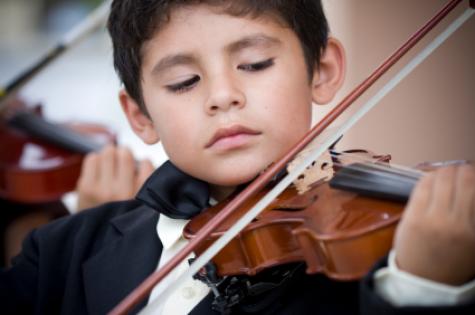We’ve all heard it before (usually accompanied by repeating hours of music scales or sports drills over and over): practice makes perfect.
But your music teachers and sports coaches were wrong – well, mostly. Practice only accounts for around one third of “perfection”, and the oft-quoted motto should be reworded to: Practice makes perfect … but only if you also have natural talent and start early enough.
I’ll explain why this is – but first, we need to explore the motto’s origins.
The deliberate practice framework proposed by Swedish psychologist K. Anders Ericsson and colleagues in 1993 has favoured the view that accumulated hours of “deliberate practice” – a type of practice aiming at correcting mistakes and rich on feedback – is the only factor that explains differences in performance in sports, arts, sciences and intellectual games.
Ericsson exposed the idea that it takes around 10 years of intense dedication to achieve high levels of performance. This idea was recently popularised by British-Canadian journalist Malcolm Gladwell in his 2008 book Outliers, but with a twist: it takes 10,000 hours to achieve such level of expertise.
Along with American psychologist Zach Hambrick and colleagues, I have been involved in a study that re-analysed previous research in the fields of chess and music, including data from Ericsson’s original deliberate practice framework study. Our findings were published earlier this month in the journal Intelligence.
This study includes my previous research in chess expertise, which showed that there is a huge variability in the numbers of hours of individual practice required to become a national master: a player achieved that level after 800 hours (or 2 years) whereas another did it after 24,000 hours (or 26 years). Moreover, a number of players dedicated more than 10,000 hours of individual practice and never achieved that level!
The re-analysis showed that, on average, practice only accounts for 30% of the skill differences in music and 34% of skill differences in chess. We concluded that deliberate practice is important, but other factors should be taken into account as well.
The other two thirds of ‘expertise’
In 2011, Hambrick suggested working memory capacity (the cognitive system that holds and allows manipulation of multiple pieces of information at a time) is sometimes the deciding factor between good and great. He found people with high levels of working memory, which is closely related to general intelligence, outperformed those with lower working memory capacity in tasks such as piano sight reading, even when the latter group had extensive experience and knowledge of the task.
Another such factor is called critical period. Players who start engaging in serious practice earlier achieve higher levels of performance than those of players who start late. And this is the case even when the number of hours of practice remains constant. In our study almost all the masters started playing chess seriously at the age of 12 or earlier.
One possible explanation of this effect is that children are able to learn domain-specific patterns more quickly than adults. If serious dedication to chess does not start at that stage there is no time to catch up and develop the large database of domain-specific patterns necessary to succeed at chess.
Our analyses confirm an exciting phenomenon that is currently going on in the world of chess. In 1st January this year, the 22-year-old Norwegian player Magnus Carlsen (known as the 'Mozart of Chess') reached the highest international rating in the history of chess, above the likes of Garry Kasparov, Anatoly Karpov and the late Bobby Fischer. He had become number 1 in the world ranking at the age of 19, and has dominated chess competitions ever since.
There has been a recent exception – he finished second in supertournament played in Norway two weeks ago. The winner was another prodigy, the Ukraine-born Russian Sergey Karjakin, who holds the record for being the youngest player in obtaining both the international master title at the age of 11 years and 11 months (in 2001), and the grandmaster title (12 years and 7 months, in 2002).
These feats and other recent achievements by young chess players cannot be accounted by the deliberate practice framework.
Don’t worry, there are positives
We wish the motto “practice makes perfect” to be true because it encompasses a view that is both egalitarian (almost everyone can practice) and fair (those who work hard are rewarded).
Unfortunately, our analyses do not support this view and, as yet, there is no reliable way to increase your working memory capacity.
But on the positive side, our research provides relevant information for those who aim high for themselves or their children. The take home message is if we detect our children have a strong interest in a discipline, we should expose them to it as soon as possible.
Guillermo Campitelli received funding from the Argentine National Research Council (CONICET). This article was originally published at The Conversation.


















__small.png)










